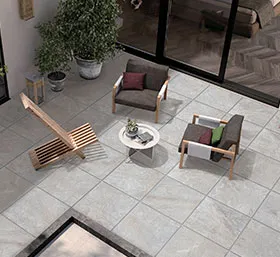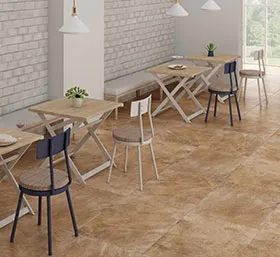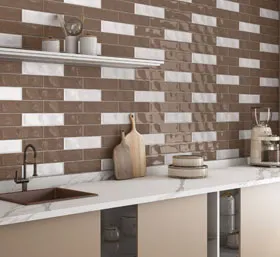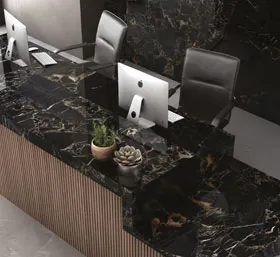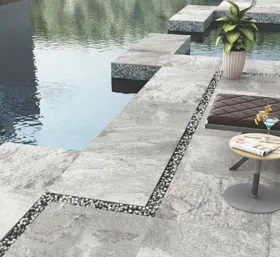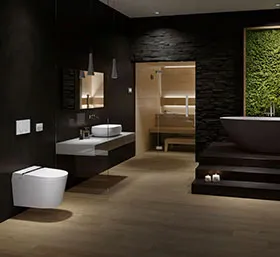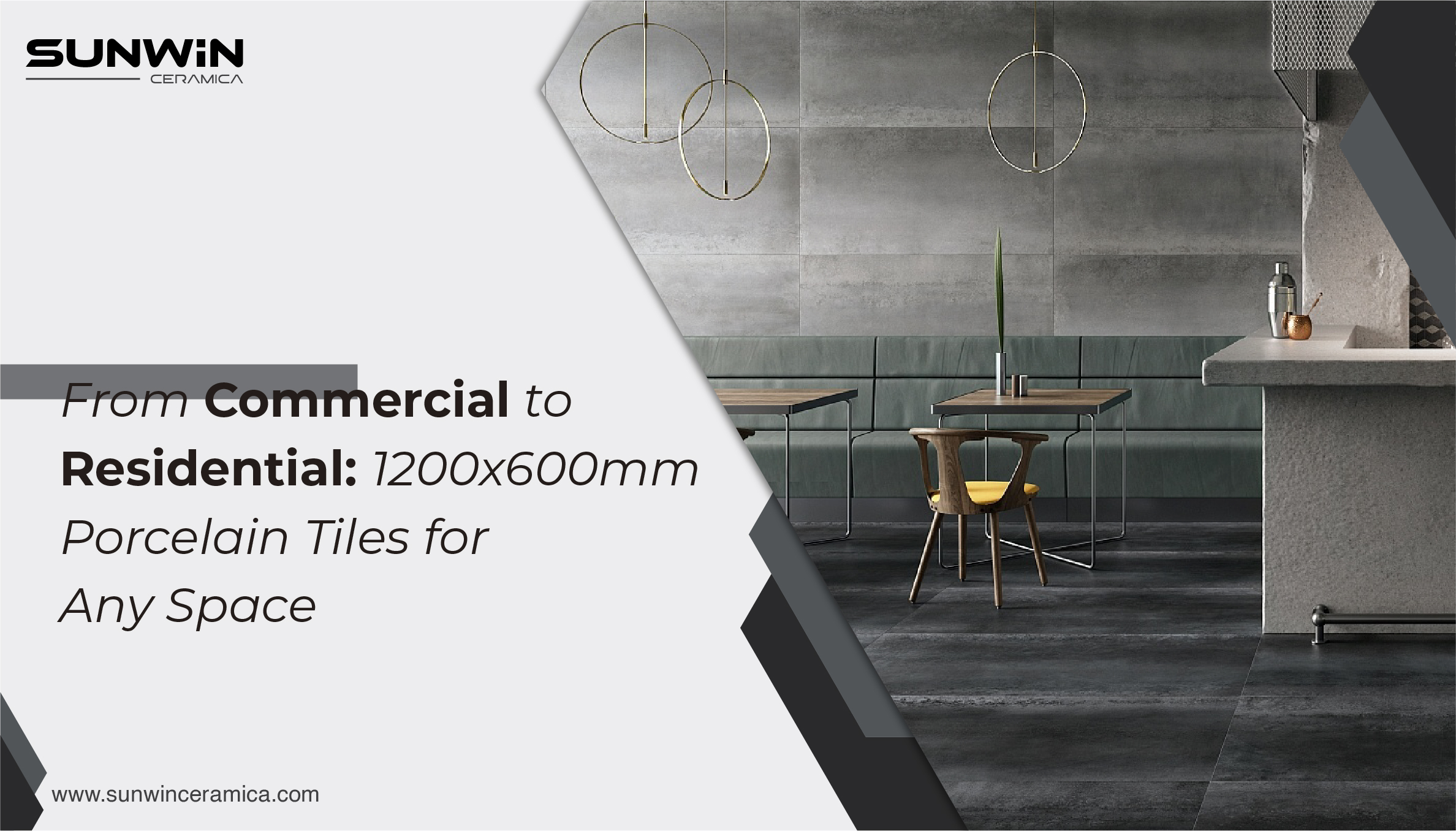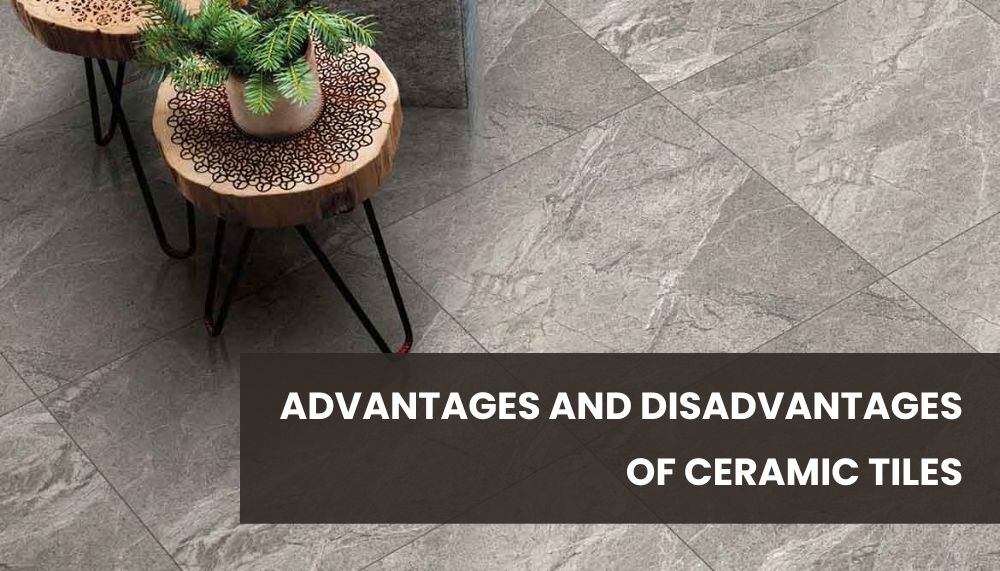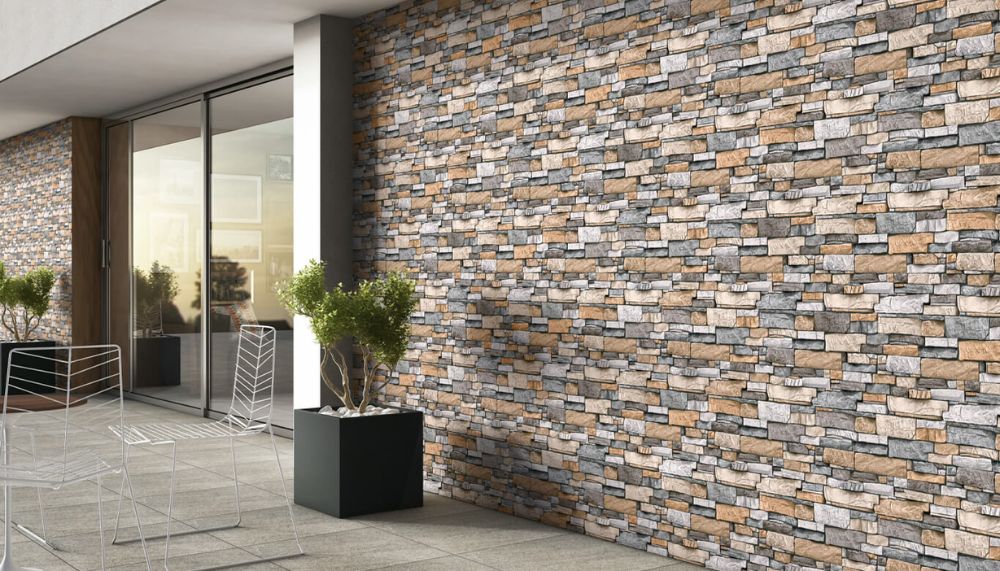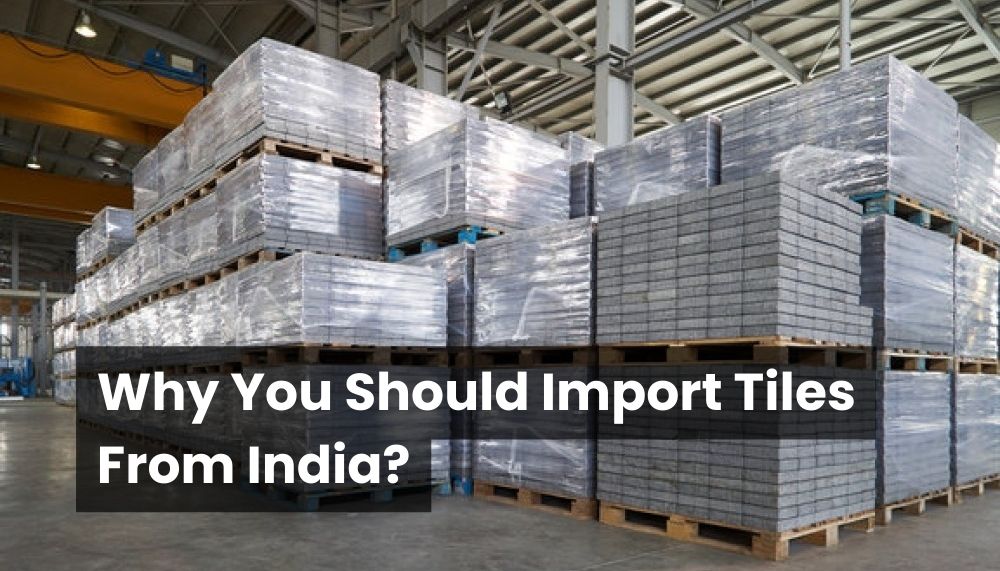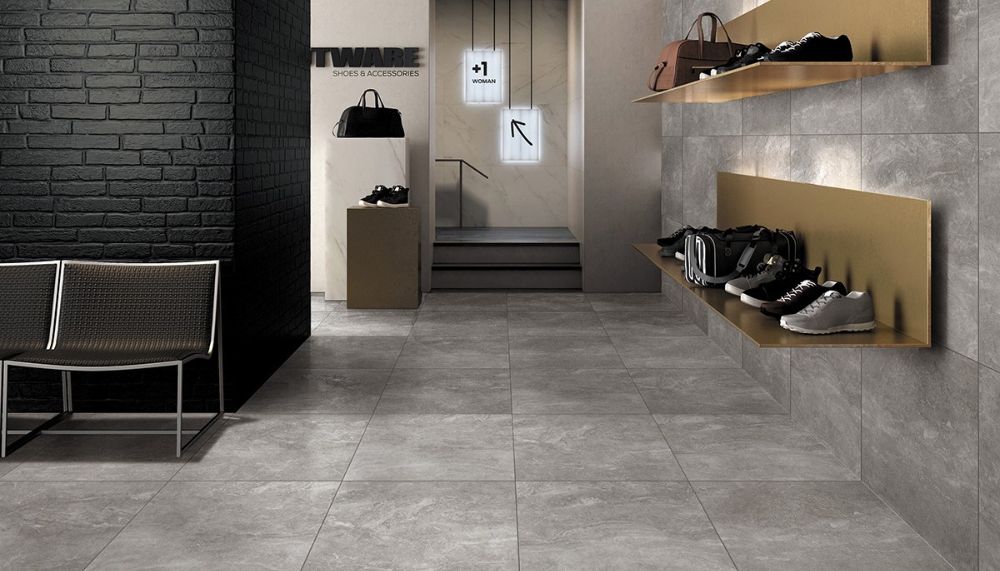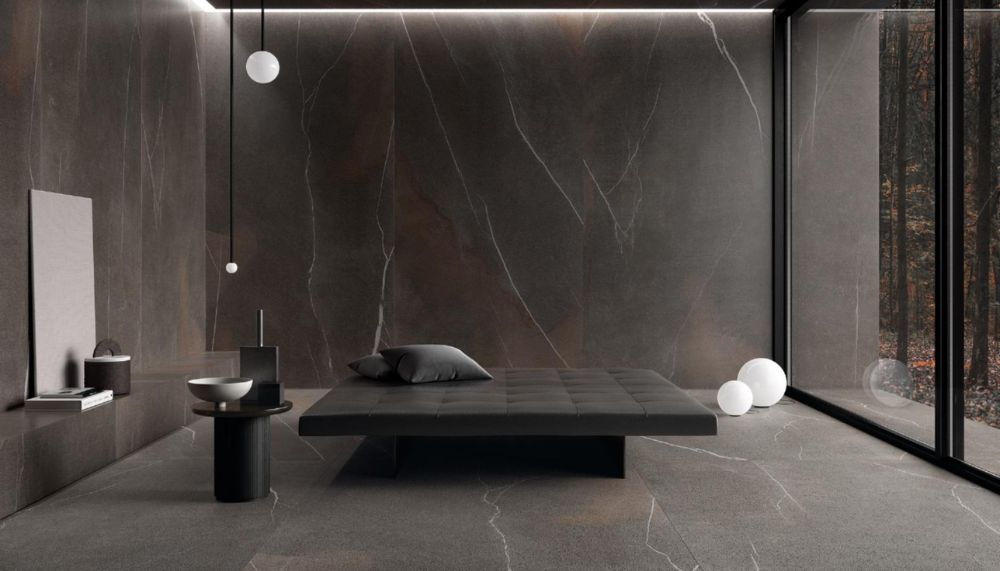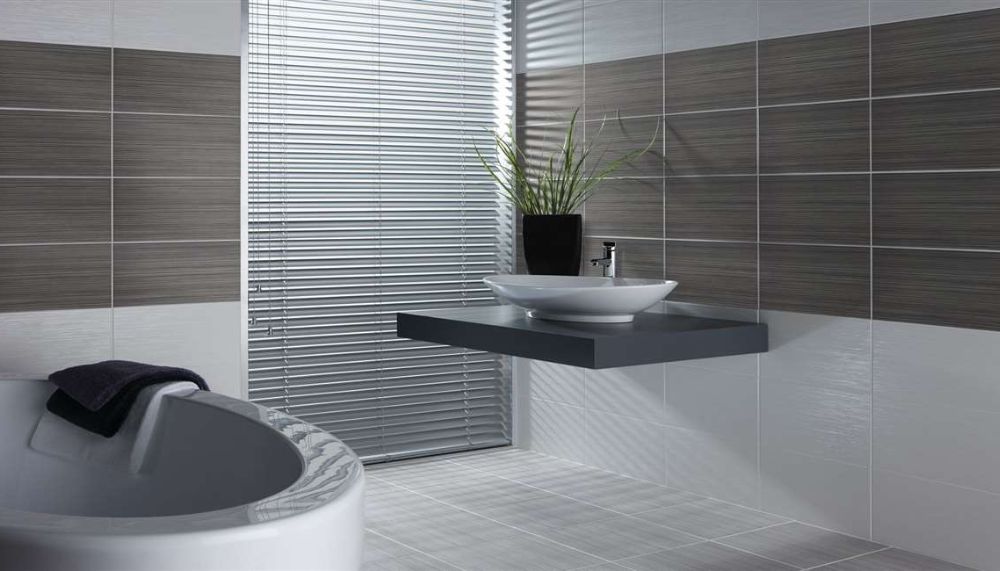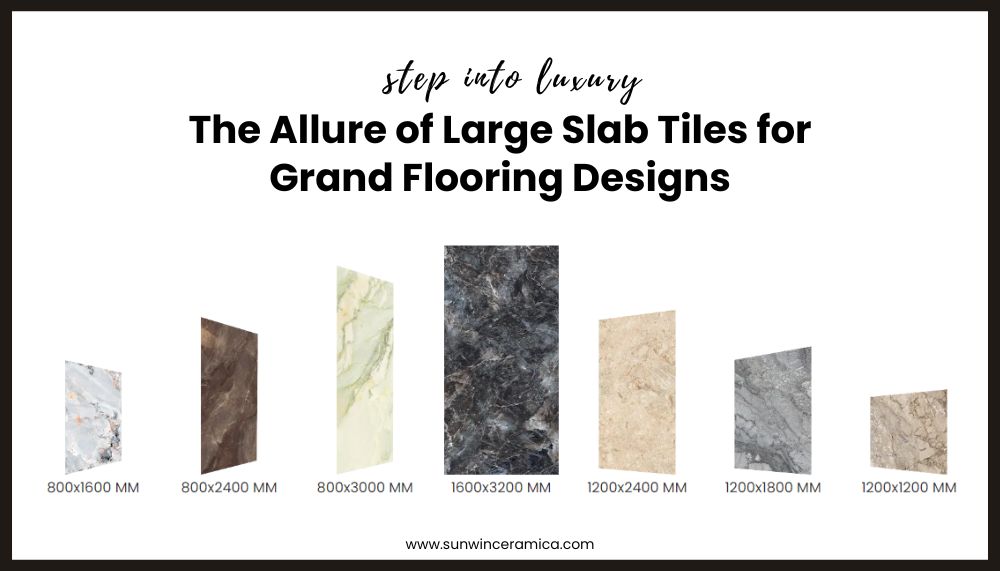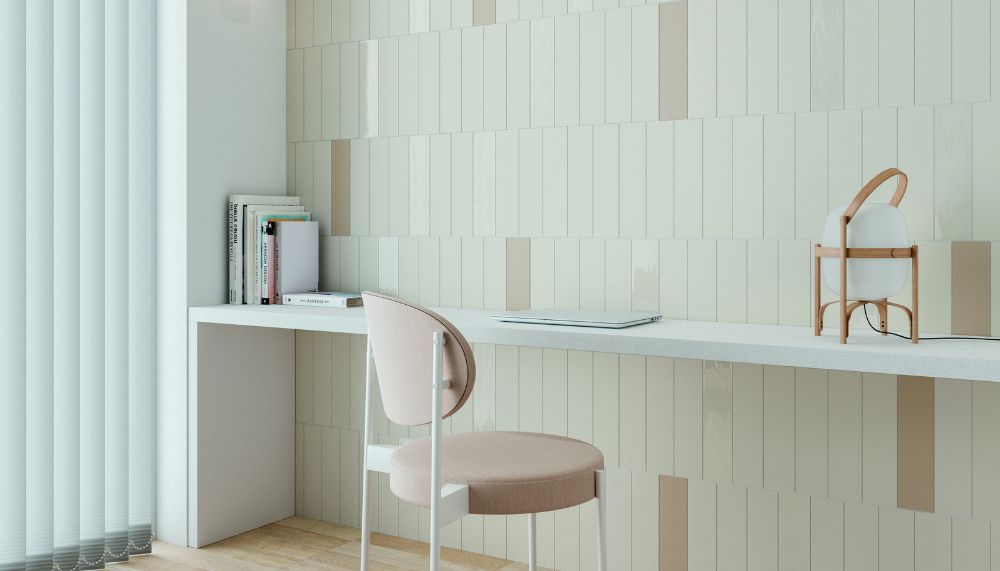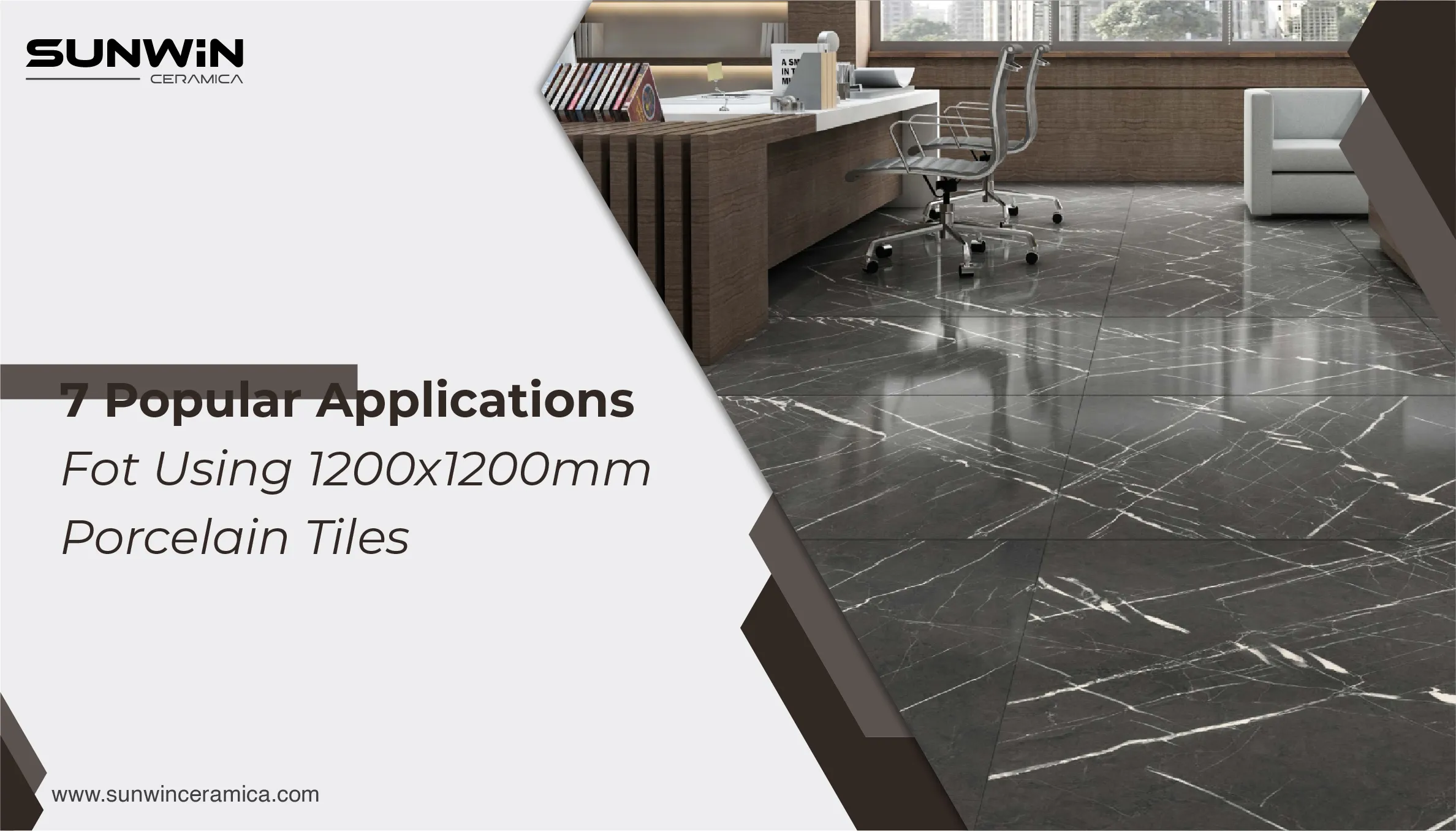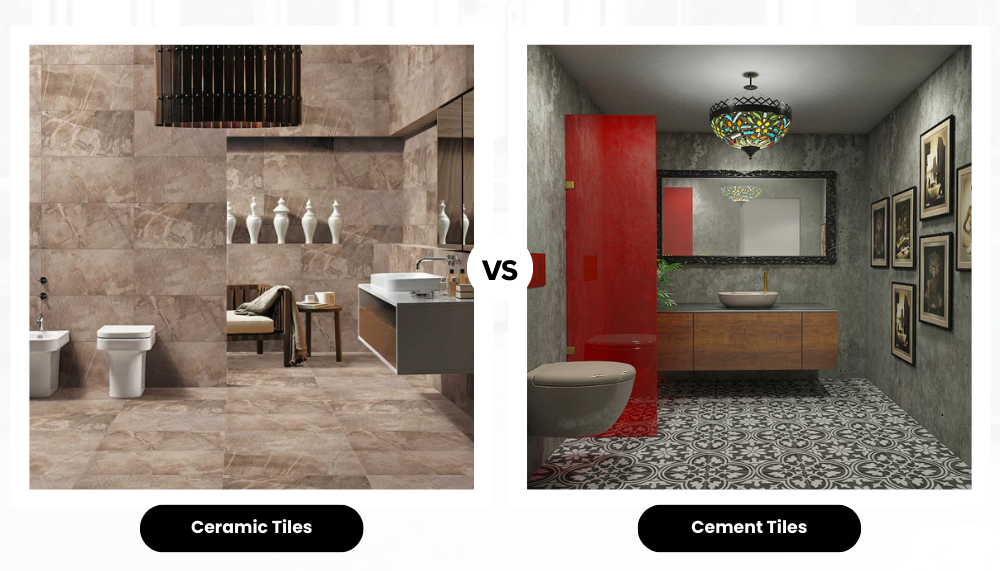
In recent years, home decor has gone through a revolutionary change with the arrival of versatile interior decor options such as modern-day floor and wall tiles. Tiles are gaining popularity in the hearts of homeowners for their exceptional beauty, durability, and wide range of design availability. In the world of floor and wall tiles, cement and ceramic tiles are two major heroes who are paving the way for mesmerizing decor styles. Both of them have unique characteristics and provide your home with a touch of elegance in different ways. But which one is better and more compatible with your home?
To find the answer we have to compare both the tile options on different parameters. In this blog, we will see a comprehensive differentiation between ceramic and wall tiles by analyzing their advantages, limitations, durability, beauty, and many more. So let's dive in.
What Are Ceramic Tiles?

Ceramic tiles are widely used across the globe for their irresistible allure and unbeatable durability. These tiles are manufactured using natural raw materials such as clay, kaolinite, feldspar, etc. Therefore they possess a strong non-porous surface with a luring shine.
The manufacturing process of ceramic tiles kick-starts with mixing the raw materials to prepare a slurry mixture. Then craftsmen give life to the slurry by moulding them into different shapes and sizes. This stage is responsible for making the tiles lightweight and providing them with fine finishes.
The next step is to forge the tiles at an extremely high temperature of 1200 to 1300 degrees Celsius to ensure the signature glaze on the surface of the ceramic tiles. It is the most significant step to make the tiles stronger and make them durable.
Advantages of Ceramic Tiles
1. Unbeatable Durability and Strength
When it comes to endurance and longevity, ceramic tiles serve you the best. The unique firing process during their manufacturing imbues them with extreme strength and durability. These tiles are engineered to withstand extreme weather conditions with ease. Therefore ceramic tiles arise as a brilliant option for both interior and exterior flooring.
2. Endless Design Possibilities

Ceramic tiles are popular for their versatile range of designs available in the market. They can exceptionally mimic the beauty of natural flooring options such as stone and wood. That's why it has become a more viable option in the replacement of natural flooring that causes harm to nature. They are available in a wide range of patterns and sizes to help you transform your home into a living paradise.
3. Effortless Maintenance and Cleaning

In our busy lives, ease of maintenance is a welcome advantage, and ceramic tiles deliver just that. These tiles have a non-porous surface, making them resistant to stains, spills, and moisture. A quick wipe or mop is usually all it takes to keep them looking fresh and clean. Additionally, ceramic tiles are hypoallergenic and inhospitable to bacteria, parasites, and mildew, making them a hygienic choice for spaces prone to moisture, such as bathrooms and kitchens.
Limitations of Ceramic Tiles
- Ceramic tiles are not good insulators, therefore can feel cold in winter and are not suitable for cooler climates
- Strongness is a double-edged sword for ceramic tiles. It provides durability to the tiles but on the other hand, also causes discomfort or fatigue on standing or walking for a long time.
- The grout lines on the ceramic floorings are prone to stain and require regular upkeep for a perfect appearance.
- It is a real hassle to repair ceramic tiles due to their lightweight and fragile appearance. You may need to replace the whole flooring for certain damage.
What Are Cement Tiles?
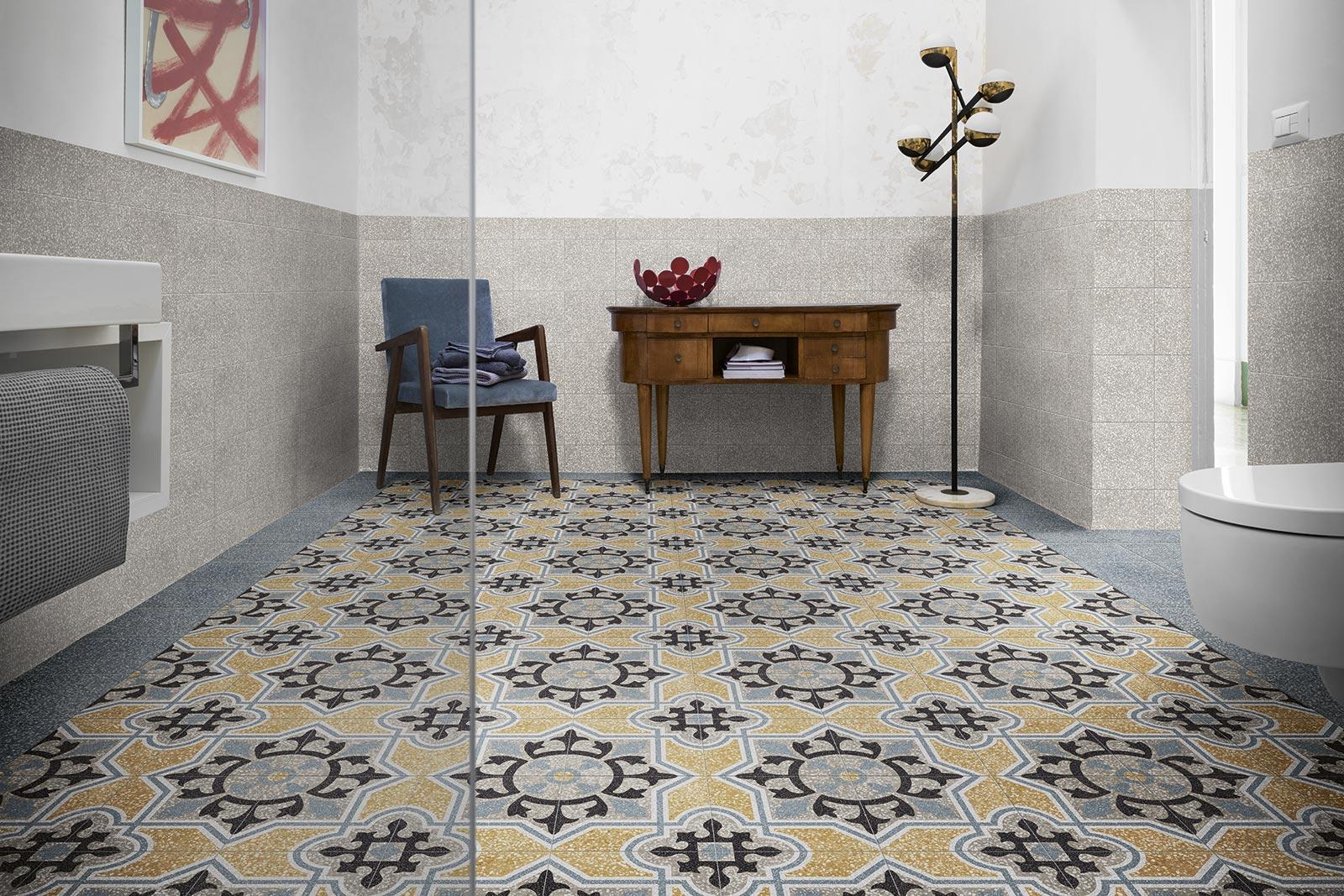
In the competition of ceramic tiles, cement tiles are the one that stands out on the stage. They are loved across the world due to their unique charm and dense character in interior spaces. Cement tiles are manufactured with a mixture of cement, sand, pigment and various additives.
The code manufacturing process involves the mixing of raw materials, moulding with a hydraulic press, curing period, and finishing. First of all, the raw materials are mixed together to prepare a fine homogeneous blend. Thereafter it undergoes hydraulic pressing that provides the tiles with their unique appearance and characteristics.
After hydraulic pressing the tiles are preserved under a curing period to provide them with a tough and durable core. One of the distinguishing features of cement tiles is their captivating patterns and designs. This is achieved through a technique called "encaustic" or "inlaid" design. Pigmented cement is poured into specific sections of the tile mould, creating intricate patterns and motifs.
Advantages of Cement Tiles
1. Durability and Longevity
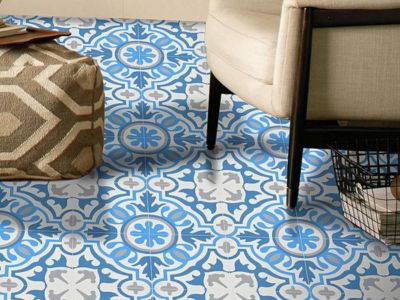
Due to the unique mixture of natural and artificial raw materials cement tiles provide excellent durability features that can serve you for generations. These tiles can easily withstand heavy foot traffic making them a great choice for both residential and commercial projects. Cement tiles are highly resistant to water and provide you with flooring that is resistant to stains. Therefore it offers long-term beauty that stands for decades.
2. Versatility in Design
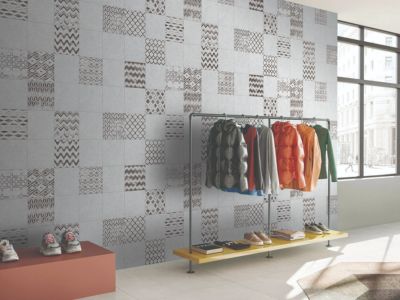
Cement tiles are customizable and can provide you with some amazing designs you have never seen before. Their captivating beauty shines out through the intricate patterns and vibrant hues that are the result of expert craftsmanship. You will have the freedom to choose from a wide range of sizes and hundreds of geometric patterns of tiles to elevate your space with cement tiles.
3. Environmentally Friendly Nature
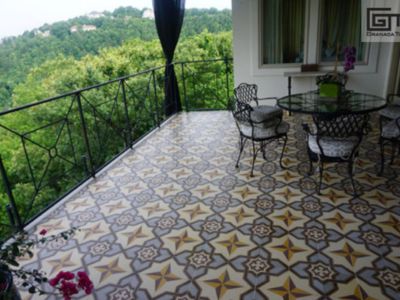
Cement tiles have gained recognition for their environmentally friendly characteristics. They are composed of natural materials such as cement, sand, and pigments, which are derived from abundant resources. The production process of cement tiles typically involves lower energy consumption compared to other types of tiles, making them a more sustainable choice.
Limitations of Cement Tiles
- The porous nature may require regular sealing to prevent staining.
- Prone to chipping or cracking under heavy impact or improper installation.
- Not suitable for areas exposed to extreme temperature variations due to potential expansion and contraction.
- Can be challenging to replace individual tiles if damaged, often requiring larger-scale repairs.
- Requires professional installation due to their weight, specialized tools, and meticulous placement.
Key Differences Between Ceramic Tiles and Cement Tiles
We have studied both tiles thoroughly, now it's time to note the key differences according to our analyzed parameters.
1. Material Composition:
Ceramic tiles: These tiles are manufactured using clay, feldspar, silica, quartz, etc. Therefore they contain a more or less high amount of natural ingredients for the shining luster.
Cement tiles: They use a combination of ingredients such as sand and cement with artificial materials as additives and preservatives.
2. Manufacturing Process:
Ceramic tiles: This tile undergoes a firing process to gain a glazed surface with fine finishes. This process also makes these tiles lightweight and durable.
Cement tiles: Made with hydraulic pressing that is responsible for the intricate patterns and endless design possibilities available with these tiles. It makes the tiles dense in the core and provides much-needed longevity.
3. Design and Customization:
Ceramic tiles: mostly mimic the natural decor options and provide a more sustainable replacement for them. Wood look ceramic tiles and stone-look ceramic tiles are some of the brilliant examples of their sheer beauty.
Cement tiles: Mostly provide innovative patterns and layouts that can serve your home with a unique appeal. Hexagonal tiles and digital cement tiles are two famous designs that showcase the level of innovation with cement tiles.
Conclusion
In this one-on-one battle, we have seen the weaknesses and strengths of both ceramic and cement tiles. Both have represented unique characteristics that can elevate your home space into a statement of art. But it will always depend on your requirements and which one is the best for you. Therefore before choosing any of them assess your space and ideas to make a perfect pick. Discuss with professionals to seek advice for better results.
